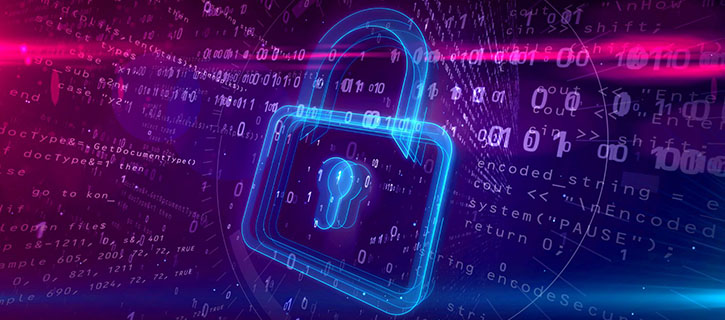How can you fend off threats to your devices?
Only download applications from official sites. If you visit a malicious website or open an e-mail, you may be exposed to an unsolicited download that automatically installs a malicious file on your device.
Be cautious of unexpected messages. Whatever the messaging tool (e-mail, SMS, chat...), an unexpected or alarming message may turn out to be malware or a much more malicious program, such as a bot, that could use your device to perform malicious tasks.
Phishing is one of the known frauds, as it is a fraudulent text message or e-mail intended to deceive the victim into providing personal and/or banking data by pretending to be a trusted third party; check the address of the site that appears in your browser.
Verify the sites you shop on. Buying your applications from known sites is not a guarantee that you will never fall victim to a malicious application, but it reduces your risk.
How to make sure your device recognises you?
Protect access with secure passwords. It is strongly recommended to increase the complexity of passwords and to use face recognition or fingerprints. With these new secure access methods, text passwords are becoming a thing of the past. These types of authentication use your own characteristics. You will no longer need to remember your passwords as your means of identification is always with you.
Run security updates on all your devices (PCs, tablets, phones, etc.) as soon as they are offered. In order to minimise the risk of security breaches in operating systems and software, it is necessary to ensure that they are regularly updated, either at work or at home.
How to prevent hacking and other online threats?
Master your social networks. It is strongly discouraged to publish personal information, especially on social networks (surname, children’s birthdays, etc.). This information is easily retrievable and can be used by hackers.
Separate your personal and professional use. Separate business and personal use to prevent your work environment from being polluted by an overload of malware, for example from downloading games.
Avoid public or unknown Wi-Fi networks. Internet access is an opportunity for hackers to break into your computer’s information systems.
How to keep your personal data safe?
Back up your data regularly. It is best to ensure that your essential data, both personal and professional, is backed up regularly and kept in a safe place, for example by using a hard drive or USB stick. You can also use cloud-based backup solutions. Indeed, the cloud offers interesting features in terms of security since it offers better encryption and masking of data, as well as better backups.
Use an antivirus. The presence of an up-to-date antivirus is more than essential to ensure the IT security of your computer and your company.
Additional security solutions such as firewalls and advanced intrusion detection systems should be implemented in your company.






